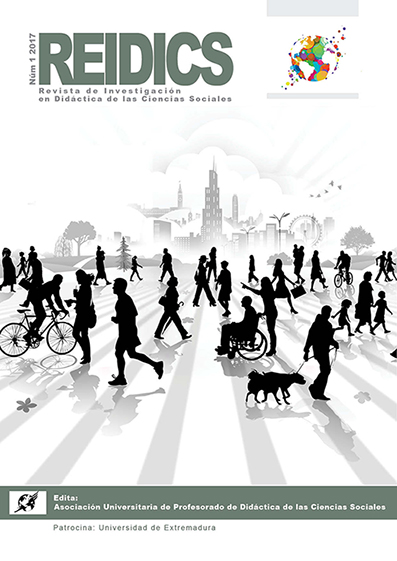Images about citizenship education in initial teacher education.
DOI:
https://doi.org/10.17398/2531-0968.01.39Keywords:
Curriculum design; educational research; coaching; teacher training; teaching social sciencesAbstract
Although in the past decades a lot has been written about citizenship education, at least in Spain little is known about how pre-service teachers are formed to educate for citizenship. In recent years we have tried to cover this gap with a line of research that to date has focused on the teacher educators of the Primary Education Degree at the University of Cantabria. After gathering their verbal rationalizations about political life and citizenship education through semi-structured interviews, we realized that we needed to go beyond this level of analysis and use new research techniques to delve into the tacit perceptions of the teachers, since they cannot be considered as the mere product of deliberate mental exercises. Hence, we chose to examine certain language tropes less subject to conscious control like metaphors, taking advantage of the recent contributions of cognitive science and neuroscience about the automatic thinking (Kahneman, 2012) and its influence on our political decisions (Haidt, 2012; Lakoff, 2008). This look at the data allowed us to detect allegories such as “citizens as plants”, “citizenship as motor” and “democracy as a goal” that outline an idealized narrative about citizenship education.
Downloads
Published
Issue
Section
License
Copyright (c) 2024 Marta Estelles Frade

This work is licensed under a Creative Commons Attribution-NonCommercial-ShareAlike 4.0 International License.
Aquellos autores/as que tengan publicaciones con esta revista, aceptan los términos siguientes:
- Los autores/as conservarán sus derechos de autoría y garantizarán a la revista el derecho de primera publicación de su obra, el cual estará simultáneamente sujeto a la Licencia de reconocimiento de Creative Commons 4.0 BY-NC-SA que permite a terceros compartir la obra siempre que se indique su autor y su primera publicación en esta revista.
- Los autores/as podrán adoptar otros acuerdos de licencia no exclusiva de distribución de la versión de la obra publicada (p. ej.: depositarla en un archivo telemático institucional o publicarla en un volumen monográfico) siempre que se indique la publicación inicial en esta revista.
- Se permite y recomienda a los autores/as difundir su obra a través de Internet (p. ej.: en archivos telemáticos institucionales o en su página web) antes y durante el proceso de envío, lo cual puede producir intercambios interesantes y aumentar las citas de la obra publicada. (Véase El efecto del acceso abierto).
- Los autores y autoras han respetado la política de autoría de esta revista.







